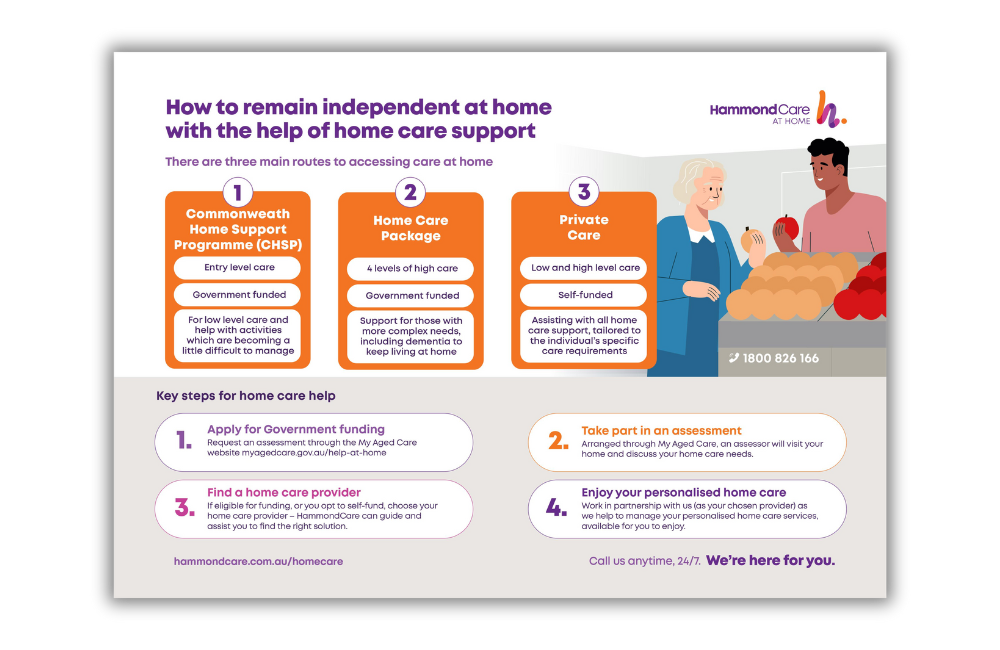Top discussion points to ask your support at home provider
Top discussion points to ask your support at home provider
Blog Article
Everything About Home Care Services for People With Disabilities: NDIS Registered Support
Home care services under the NDIS play a crucial function in supporting individuals with handicaps. These solutions are developed to improve daily living via customized assistance, varying from personal like mobility support. Recognizing exactly how to browse these options can be complicated. This introduction explores the various facets of NDIS home treatment, from offered solutions to the option of providers, highlighting vital factors to consider for those seeking support. The journey towards encouraged care starts right here.
Recognizing the NDIS and Its Purpose
The National Disability Insurance Policy System (NDIS) works as a transformative structure developed to offer assistance and services for individuals with impairments. Developed to enhance the top quality of life and warranty equitable accessibility to necessary sources, the NDIS encourages participants by supplying individualized strategies customized to their one-of-a-kind requirements. It intends to promote independence, enabling people to seek their individual objectives and aspirations.Through an organized strategy, the NDIS assigns financing for different assistances, consisting of education and learning, work aid, and community involvement. This all-encompassing scheme not only concentrates on instant care but additionally highlights long-term developing results. By promoting selection and control, the NDIS motivates participants to select their recommended provider, ensuring that treatment aligns with their choices and values. Eventually, the NDIS represents a significant dedication to improving the lives of individuals with handicaps, fostering inclusivity, and developing a more supportive society.
Kinds Of Home Care Provider Available
Numerous kinds of home treatment services deal with people with disabilities, mainly concentrating on personal treatment support and respite treatment choices. Individual treatment support offers necessary support with daily activities, while break care offers short-lived relief for key caregivers. Understanding these services is crucial for ensuring the health of both individuals with disabilities and their families.
Personal Treatment Assistance
While steering life can offer challenges for people with disabilities, personal treatment support supplies vital support tailored to their unique demands. This kind of home care solution includes a series of tasks made to advertise freedom and improve quality of life. Individual treatment aides aid with day-to-day jobs such as showering, clothing, grooming, and toileting, making sure individuals keep individual hygiene and convenience. They might also assist with dish preparation, medicine monitoring, and wheelchair assistance. By offering individualized care, these experts encourage individuals to engage even more fully in their daily routines and social activities. Overall, personal care aid plays a considerable function in fostering self-respect and autonomy for those with handicaps, allowing them to flourish in their home setting.

Reprieve Treatment Options
Reprieve treatment acts as a vital source for households and caretakers of individuals with disabilities, supplying temporary alleviation from the needs of day-to-day caregiving. This kind of solution can take different kinds, including in-home reprieve care, where trained experts go to the home to assist with treatment tasks. Family members may choose for facility-based reprieve care, where individuals get care in a specific atmosphere, permitting caretakers to take a break. In addition, some organizations use emergency reprieve solutions for unanticipated situations. These options not just aid minimize caregiver anxiety yet additionally advertise the health of individuals with impairments by offering them brand-new experiences and social interaction. Overall, break care plays an important role in sustaining both caretakers and those they take care of.

Just How to Access NDIS Home Care Providers
Accessing NDIS home care solutions entails comprehending the qualification standards set forth by the National Special Needs Insurance Policy Scheme. People must navigate a structured application process to protect the essential assistance customized to their needs. This section will certainly clarify both the qualification demands and the steps associated with making an application for services.
Qualification Standards Clarified
To get NDIS home care solutions, people need to meet specific qualification criteria that evaluate their demands and conditions. Applicants have to be matured between 7 and 65 years and have a considerable and permanent handicap that influences their capability to carry out everyday tasks. Additionally, they need to be an Australian resident, an irreversible resident, or hold a Protected Special Category Visa. The NDIS requires evidence of the special needs, normally with clinical analyses or reports. Individuals should show that they require assistance to get involved in economic and social life. These standards guarantee that solutions are guided in the direction of those that really need support, promoting freedom and enhanced lifestyle for individuals with handicaps.
Application Refine Steps
Can I Pick My Own Support Workers With NDIS?
The specific asked whether they could choose their own support employees under the go to this site NDIS framework. Generally, individuals have the flexibility to pick support employees, promoting customized treatment that straightens with their particular needs and choices.
What Happens if My Demands Modification After Receiving Assistance?
If a person's requirements change after obtaining assistance, they need to communicate these adjustments to their provider. Modifications can be made to the care plan, making sure that the support remains effective and relevant for their situations.

Exist Limits on Exactly How Many Hours of Treatment I Can Receive?
The private asked about possible restrictions on the number of treatment hours obtained. Typically, such limitations might exist based on particular plans or moneying setups, stressing the importance of evaluating contracts and guidelines routinely.
Can I Utilize NDIS Financing for Home Alterations?
The concern of making use of financing for home alterations develops often. Normally, individuals may make use of NDIS funding for required modifications to their homes, ensuring availability and safety and security, section upon conference certain eligibility requirements and guidelines.
How Do I Deal with Problems Concerning My Home Treatment Providers?
To attend to grievances about home care solutions, individuals need to first record their issues. They can communicate directly with their service supplier, looking for resolution, or rise the concern to pertinent oversight bodies if essential. Home treatment services under the NDIS play an essential duty in supporting people with handicaps. Different kinds of home care solutions cater to people with impairments, largely focusing on individual care help and respite care alternatives. home care package providers. Personal care support offers vital support with daily tasks, while break treatment uses short-lived relief for main caretakers. Households might opt for facility-based break treatment, where people receive care in a specific atmosphere, permitting caregivers to take a break. Just how can families successfully take care of the financial elements of home care services for people with handicaps?
Report this page